In this experiment I melt beach sand into crummy, crumbly, 2 dimensional art.
Why?
1) I saw this video a few years ago where sunlight is used to melt sand into glass: https://vimeo.com/254014442) There aren't many examples of laser melting sand on the internet.
3) I built an 80 watt laser cutter.
4) Sand is free if you steal it from the beach.
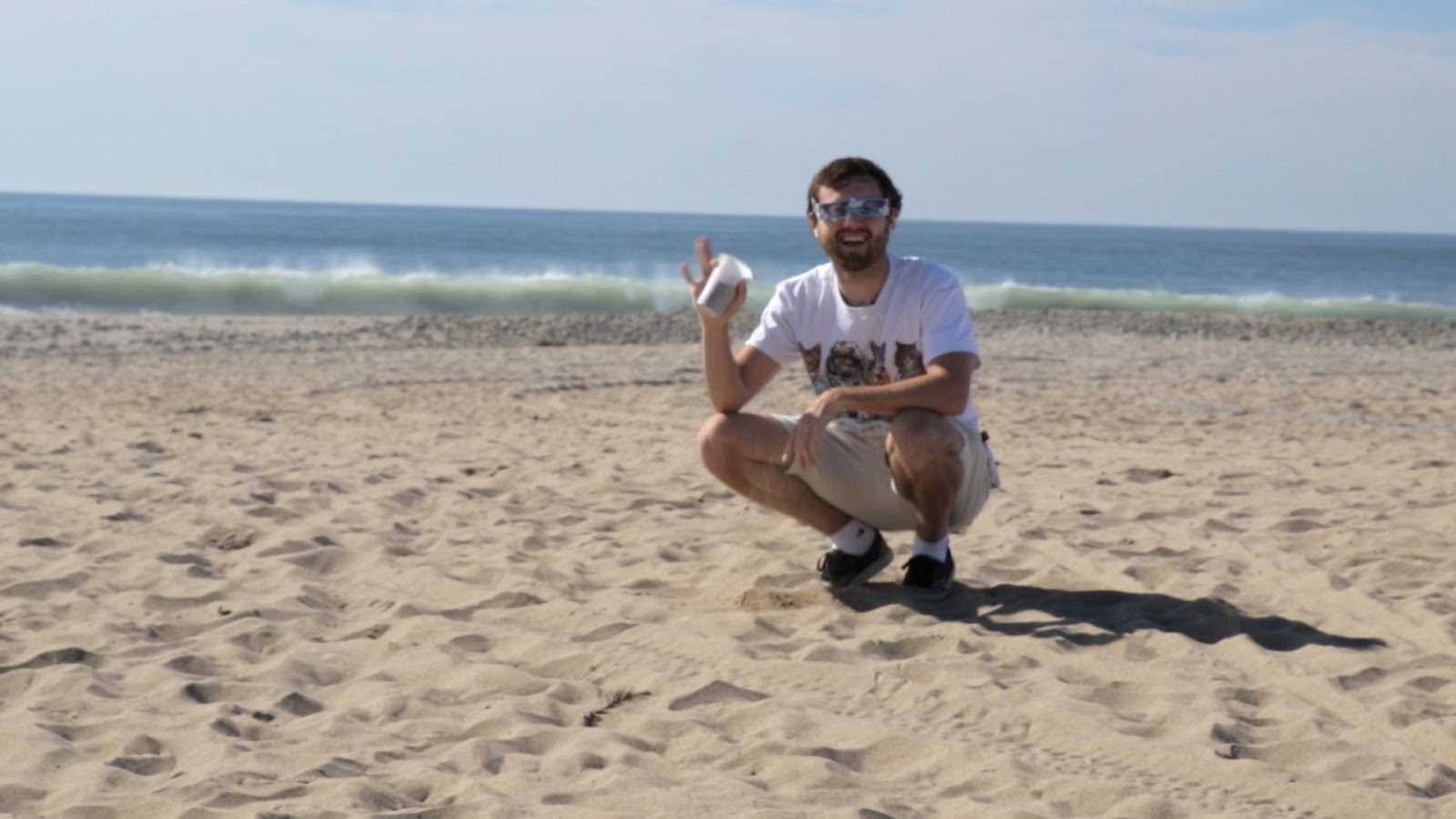 |
| Sand Thief |
Video Overview
Click-bait thumbnail by me.
I just realized there's a thumbnail in the thumbnail.
Experiment
I have no idea if beach sand will even melt under the laser. In preparation of a non/semi melti outcome, I did 10 minutes of research into glassmaking. Sodium carbonate is used as a flux to lower the melting temperature of the sand particles. It's commonly sold as 'soda ash' for maintaining pools, dying clothes, and making glass (surprise). Instead of buying soda ash, I made some by heating baking soda in an electric skillet at 200F for 30 minutes.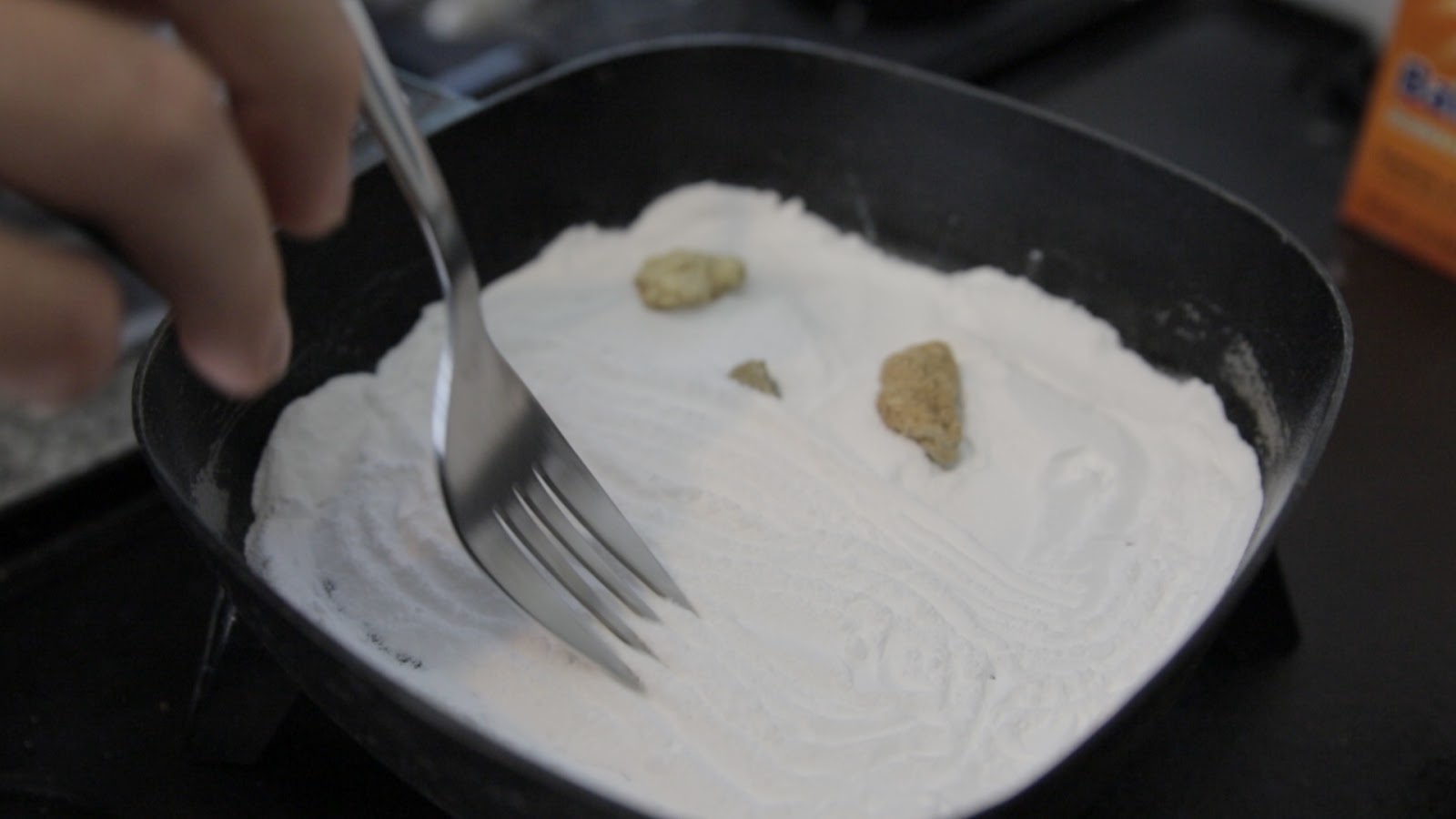 |
| Let's cook |
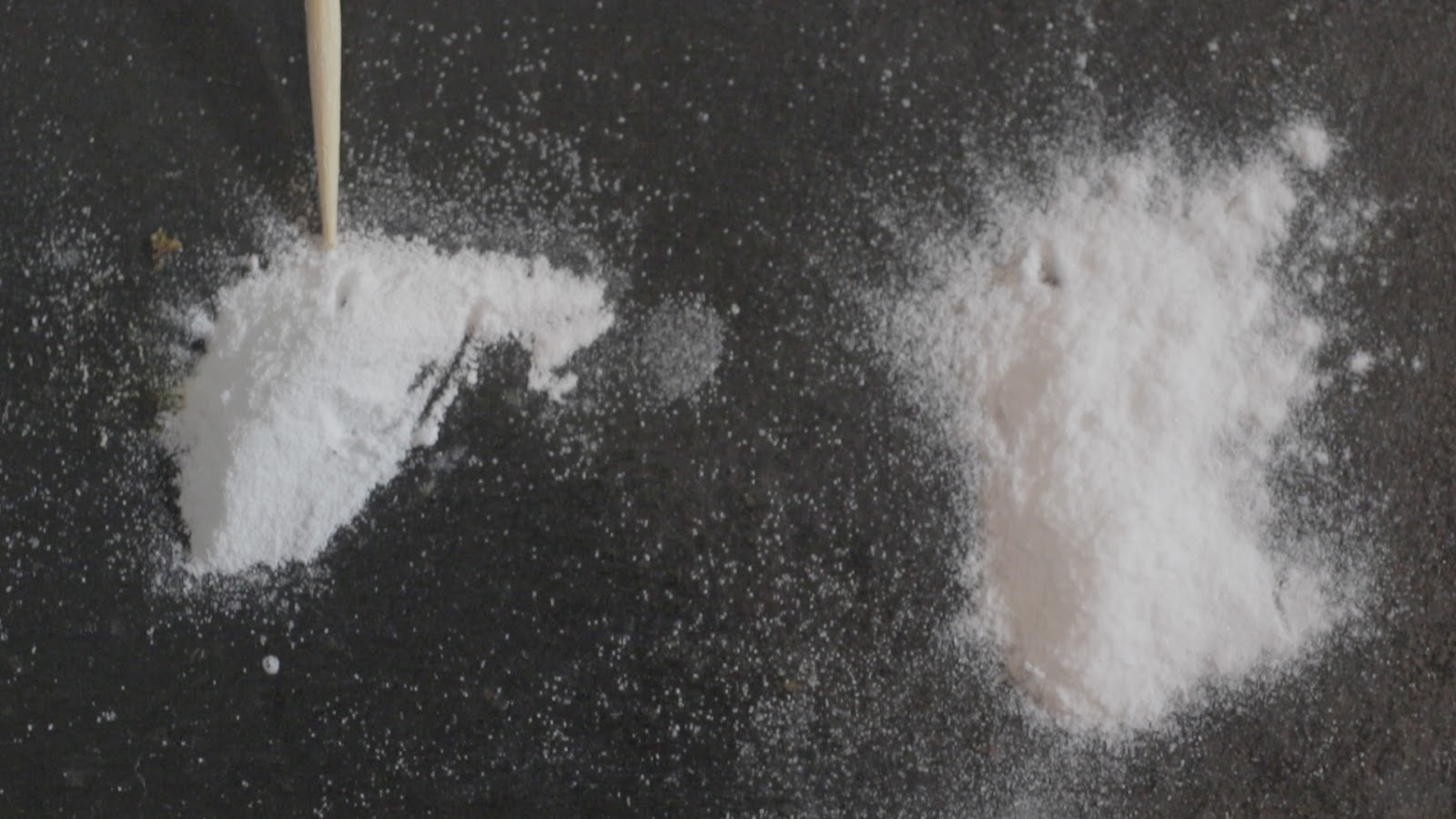 |
| Left: Sodium Carbonate, Right: Sodium Bicarbonate (baking soda) |
I DID NOT use soda ash in these first tests
First I cleaned the beach sand by running water through it till it came out clear.
Yes, I realize this experiment hasn't been a strict application of the scientific method, but I'm like 95% sure that sodium carbonate produces better results. I'm 100% sure a properly grounded laser tube produces better results.
Many people have requested I try this again with with finer/cleaner sand. I'm also thinking about 3D printing with sand in a future project.
First I cleaned the beach sand by running water through it till it came out clear.
The air assist was turned down to not spray sand everywhere. Then I simply held the laser on full power. Assuming there wouldn't be much smoke, I hadn't turned the ventilation on.... However there was much smoke. Air assist kept the lens clean, but the nozzle was coated in white soot. The laser wasn't on long enough to make much of a sand ball.
Test two: the ventilation is on! I held the laser on full power for about 20 seconds.
Then I smashed the tiny glass ball with a hammer. The ball is about an 1/8th inch diameter.
It seems like the ball wasn't really a homogeneous glass mixture, but just a bunch of sand stuck together.
Now let's try melting a ring.
This first ring was very thin and very frail. It didn't survive me scooping it up.
Here is the second result at a slower speed and more defocused.
This is like an F+ in the academic world; failure without total disaster.
NOW I ADD ~20% SODIUM CARBONATE TO THE SAND.
To properly test sodium carbonate's effectiveness, I melted a third ring using the exact same settings as the previous.
Success!!! The sodium carbonate makes a huge difference. This ring isn't exactly strong, but at least it's holding together. Also, there seems to be more homogeneous melting, look at the shiny black areas!
At this point in the experiment, I've realized something is wrong with the laser. The laser cutter is in an incomplete yet functional state, and at some point the current gauge for the laser tube was turned around. This little gauge is an indicator of the laser's power output, and an early way to detect something wrong.
Anyways, the actual problem wasn't the gauge, but the grounding wire from the laser tube became disconnected from the grounding terminal on the laser power supply. The laser was still operating, since the high voltage was arcing out of the wire into the earth grounded aluminum frame of the laser cutter. This is scary. The extra resistance of the air-gap was causing a drop in laser power, which I did not see since the current gauge was facing backward.
I have no idea how long it's been like this....
Lets try melting another ball.
Next test!! Rastering an entire circle!
Yep, this is working so much better than the first tests.
In the end, I made 5 different pieces:
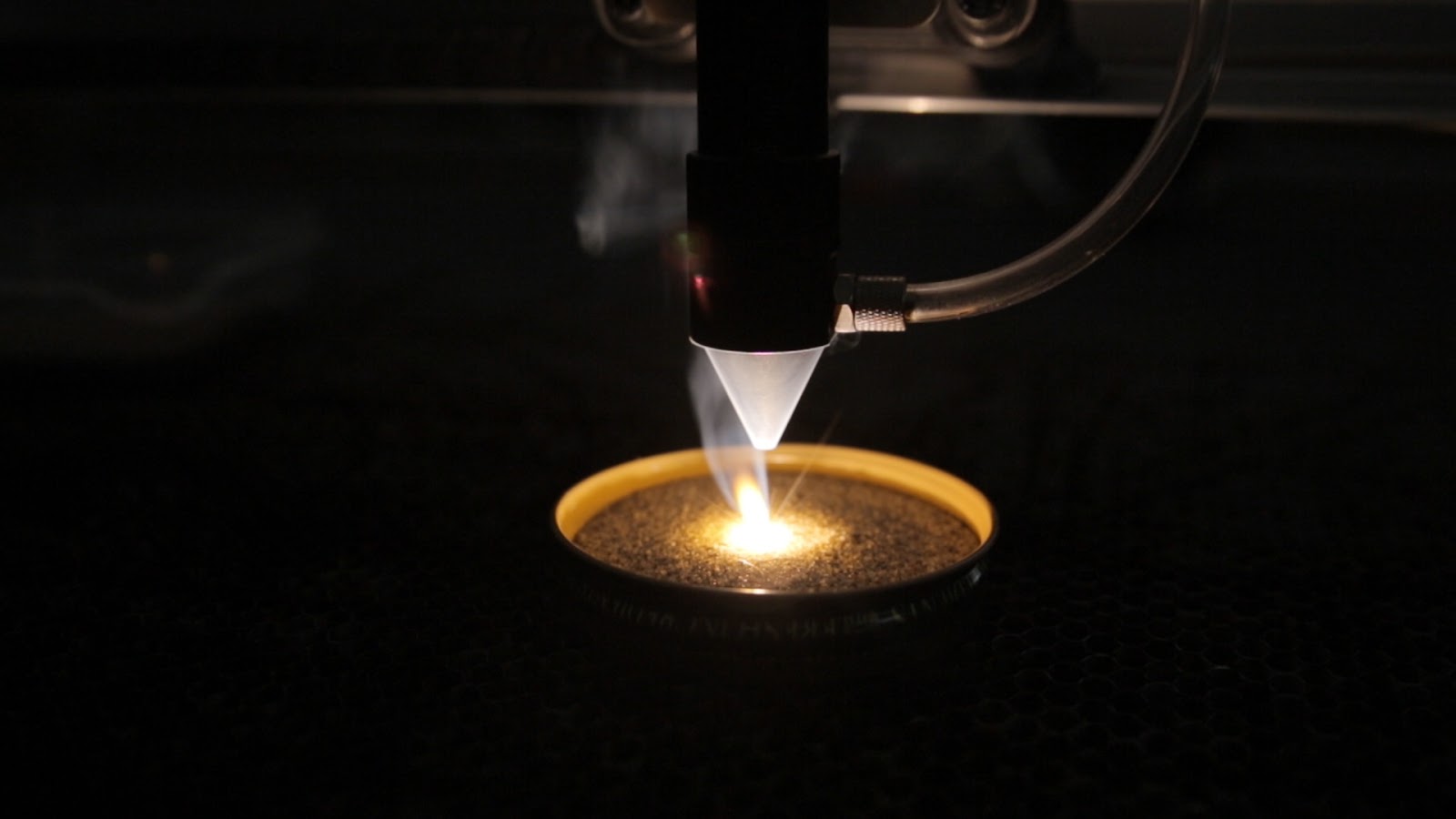 |
| First smokey test |
Then I smashed the tiny glass ball with a hammer. The ball is about an 1/8th inch diameter.
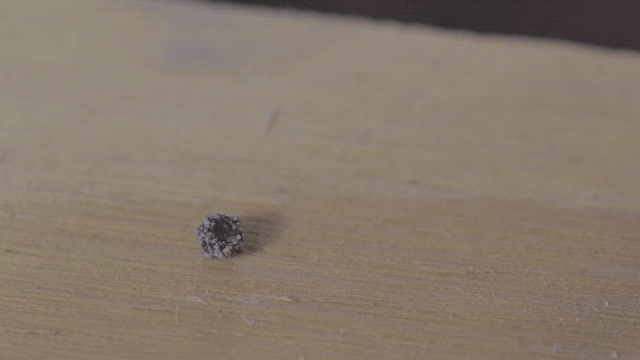 |
| Smash! |
Now let's try melting a ring.
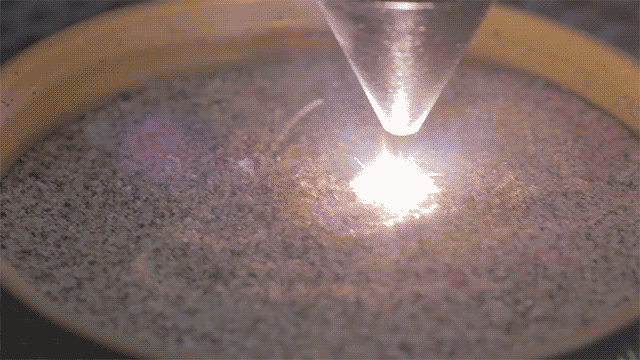 |
| Melting a ring |
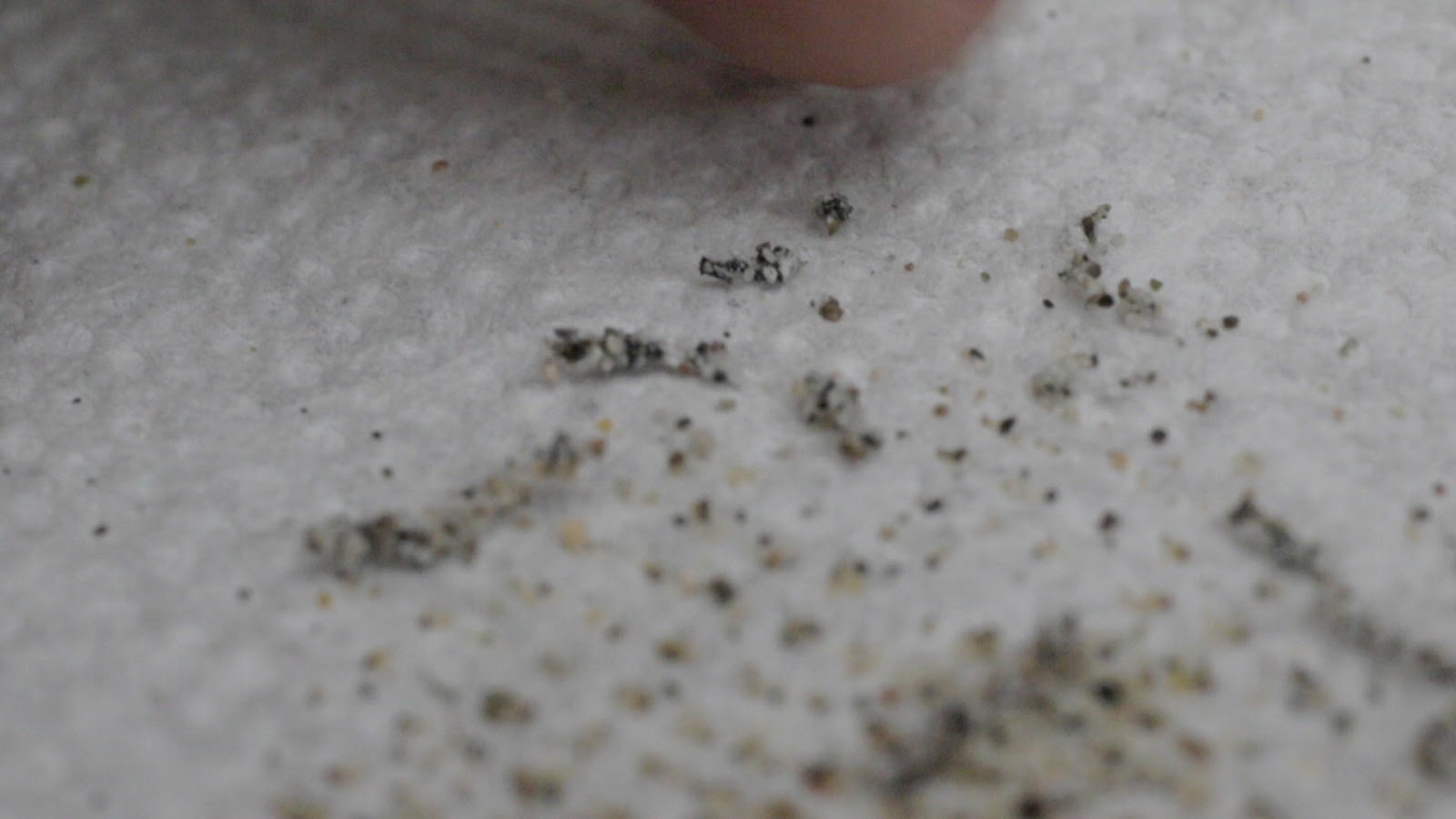 |
| Failed ring |
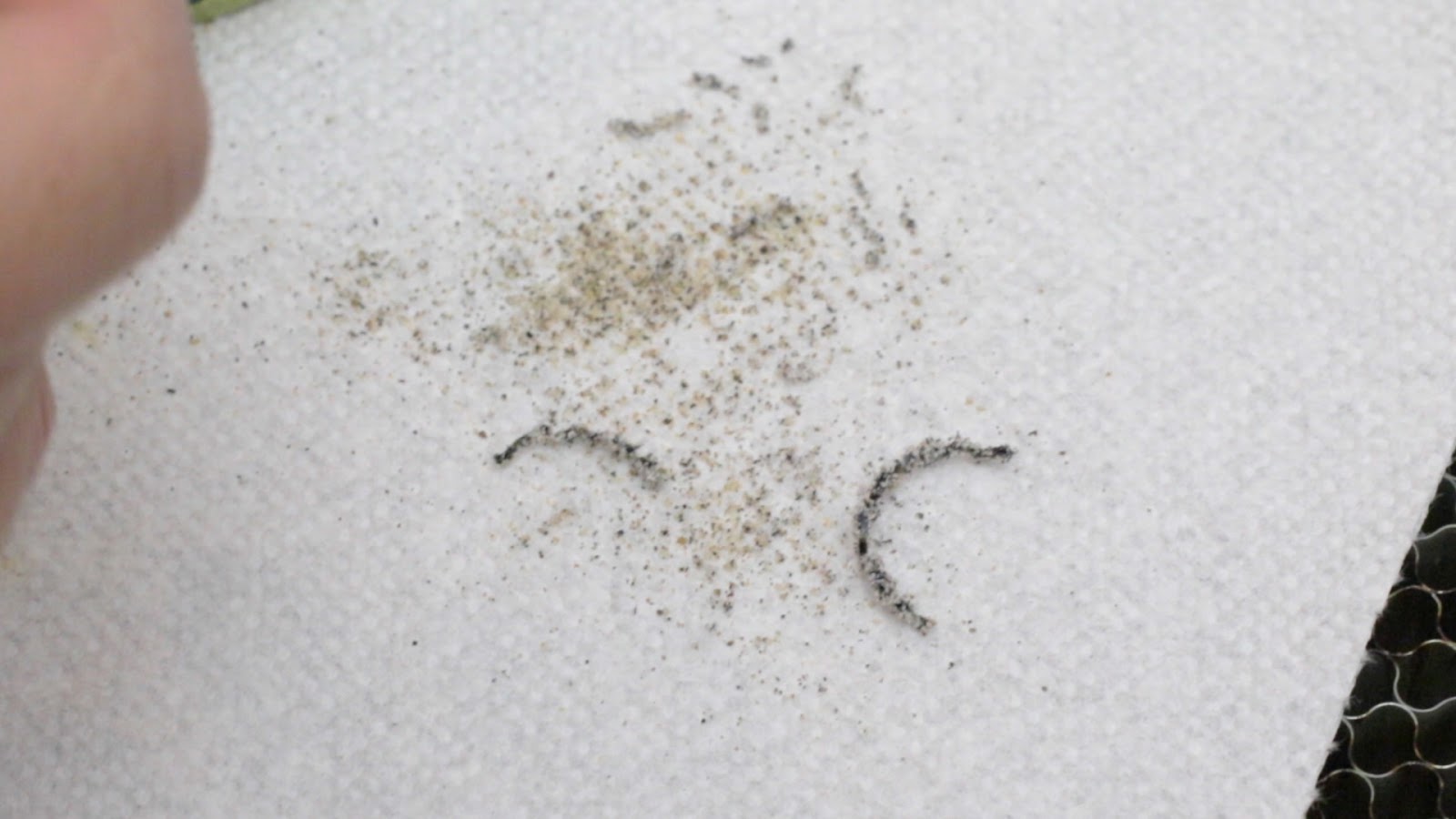 |
| Second failed ring |
NOW I ADD ~20% SODIUM CARBONATE TO THE SAND.
To properly test sodium carbonate's effectiveness, I melted a third ring using the exact same settings as the previous.
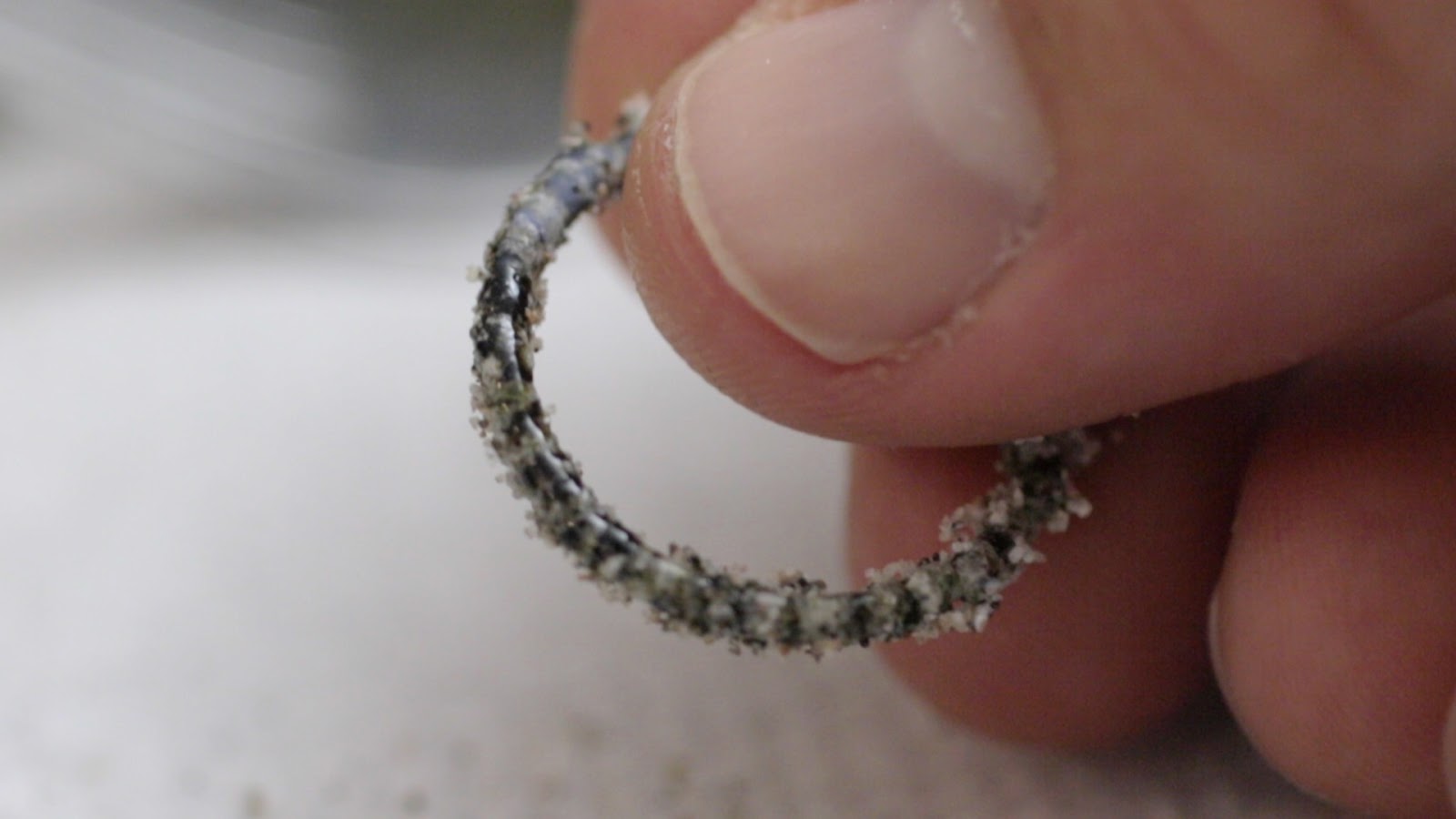 |
| Sodium carbonate ring! |
At this point in the experiment, I've realized something is wrong with the laser. The laser cutter is in an incomplete yet functional state, and at some point the current gauge for the laser tube was turned around. This little gauge is an indicator of the laser's power output, and an early way to detect something wrong.
| Gauge is on the left. |
I have no idea how long it's been like this....
| Arcing ground wire |
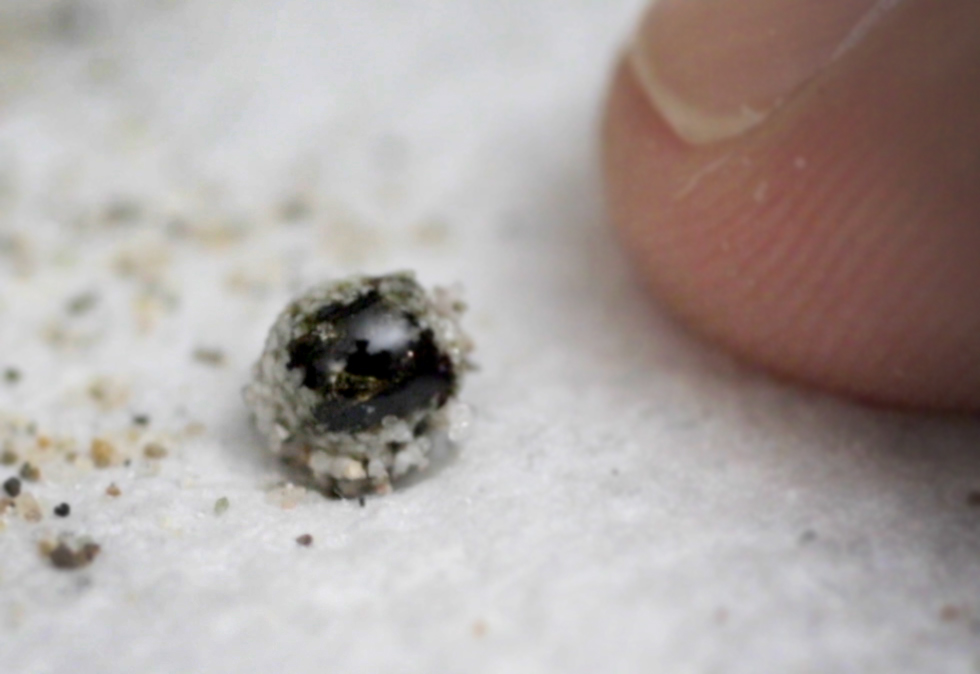 |
| Look how shiny! |
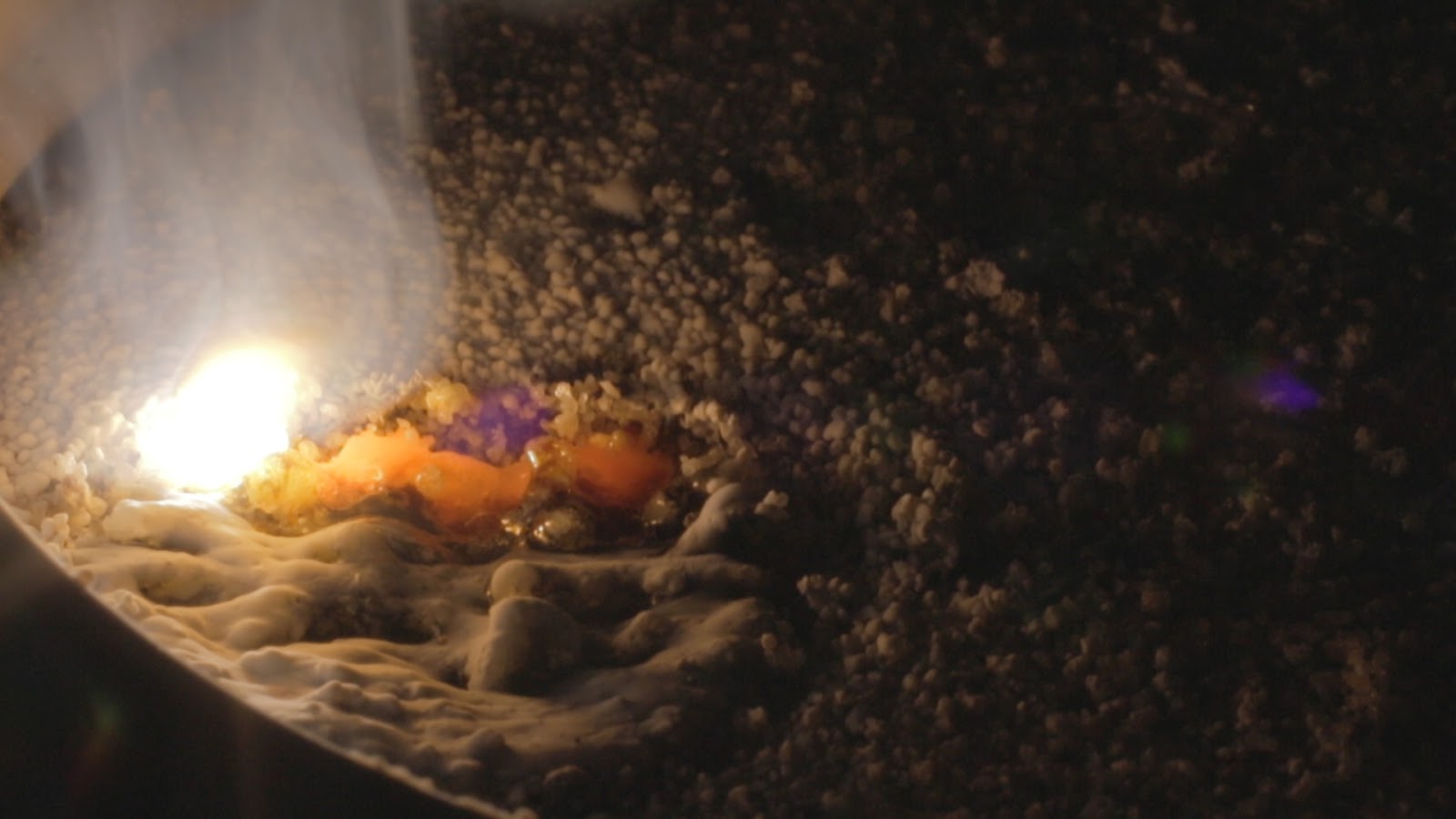 |
| Melting a sand circle |
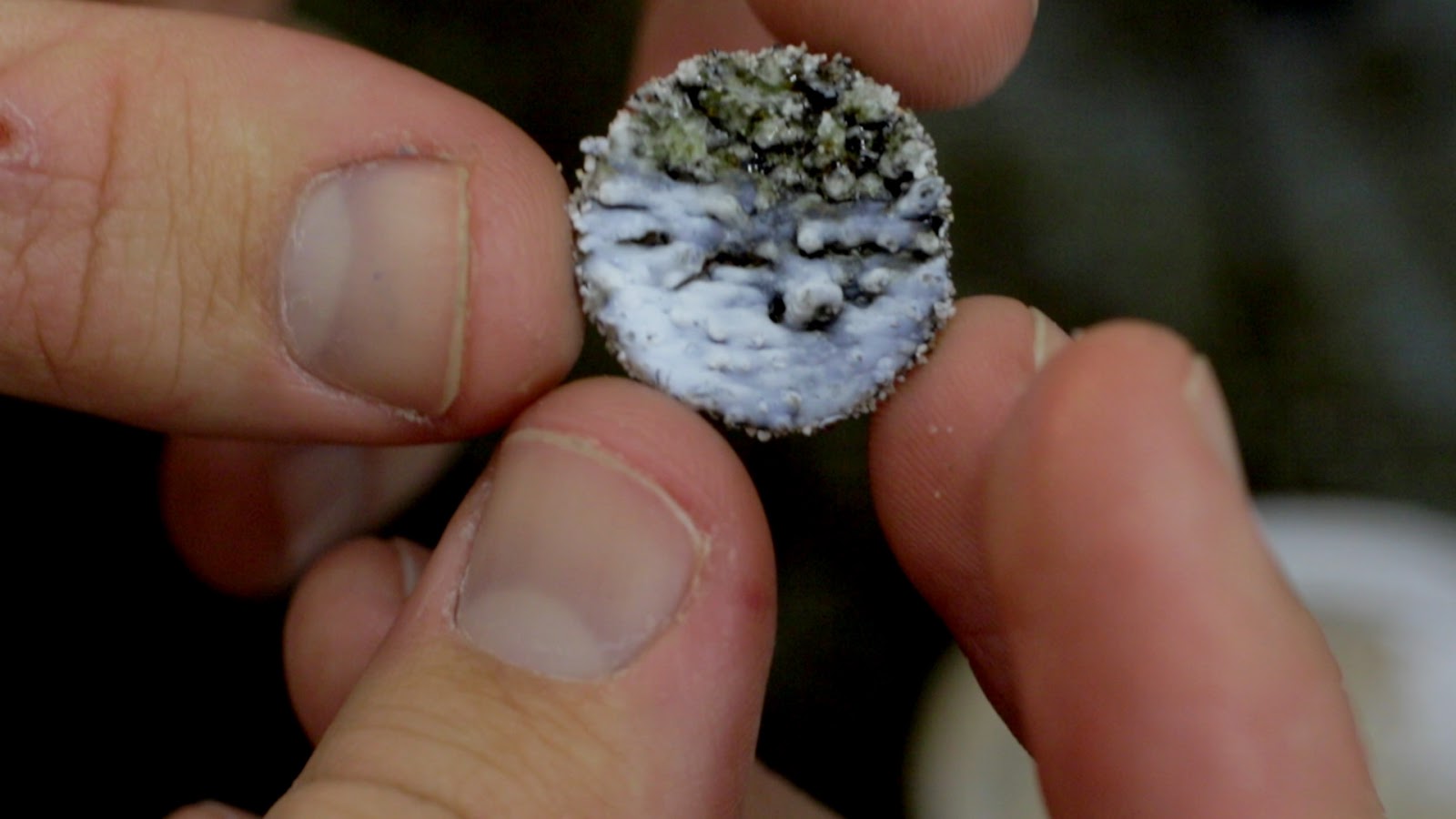 |
| Fancy sand circle |
- Circle
- Star
- Lightning bolt
- Giant spiral
- Flying Spaghetti Monster
 |
| The collection |
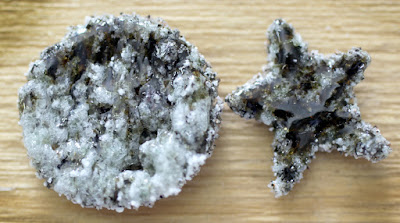 |
| Closer! |
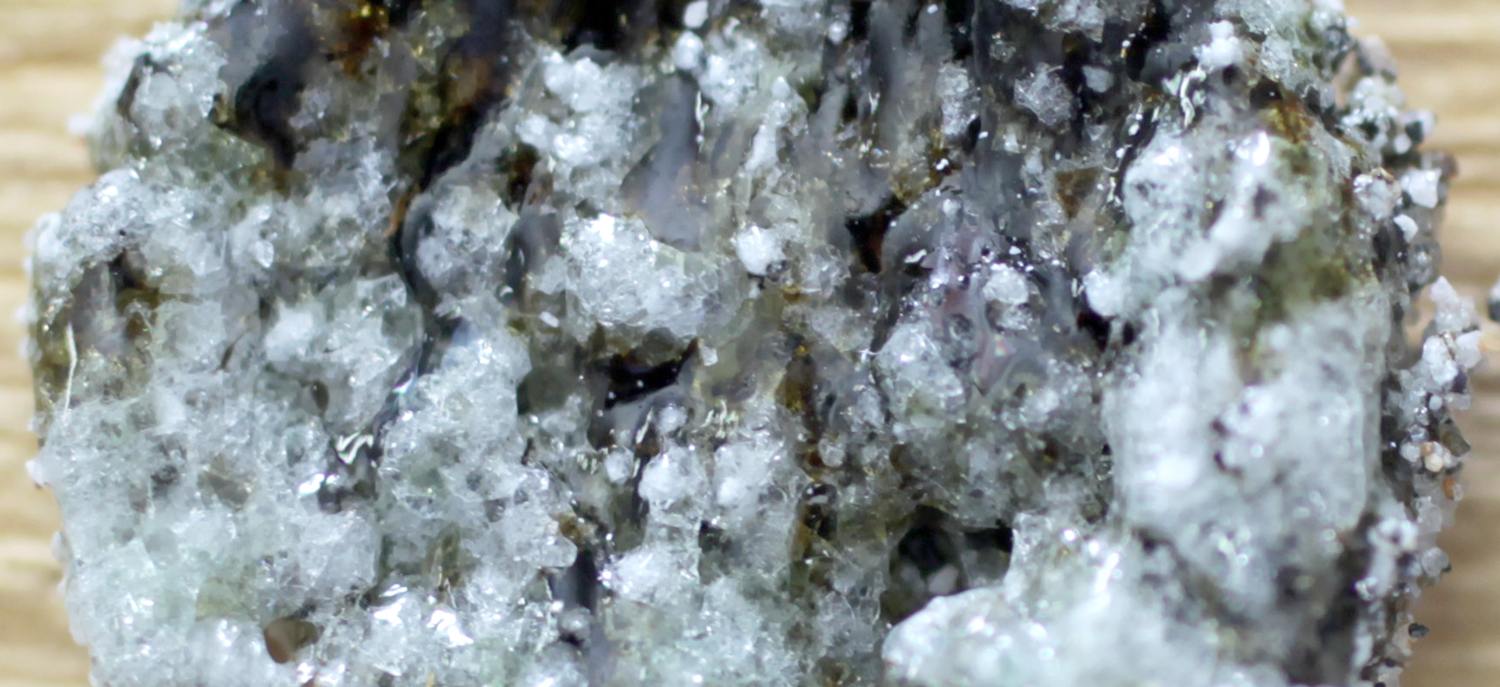 |
| Clooooooser! |
Conclusion
Many people have requested I try this again with with finer/cleaner sand. I'm also thinking about 3D printing with sand in a future project.
really cool
ReplyDeleteThank you!
DeleteHave you tried a purer glass making compound a 50/50ish soda ash and borax (Sodium tetraborare - a cloths detergent "booster"). A compound also used in reclaiming gold from glass flux.
ReplyDeleteTetraborate*
DeleteI have not. This was my first attempt ever. Thanks for the info!
DeleteThat is a very unique project idea.
ReplyDeleteThanks! It's not entirely original, I took some inspiration from the video linked up top.
DeleteI have a 180 Watt CO2 laser. I was just wondering if this could be done. I WILL be trying this.
ReplyDeleteI'm jealous, that's a lot of power
Delete